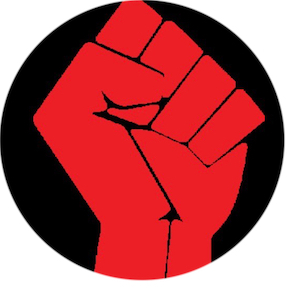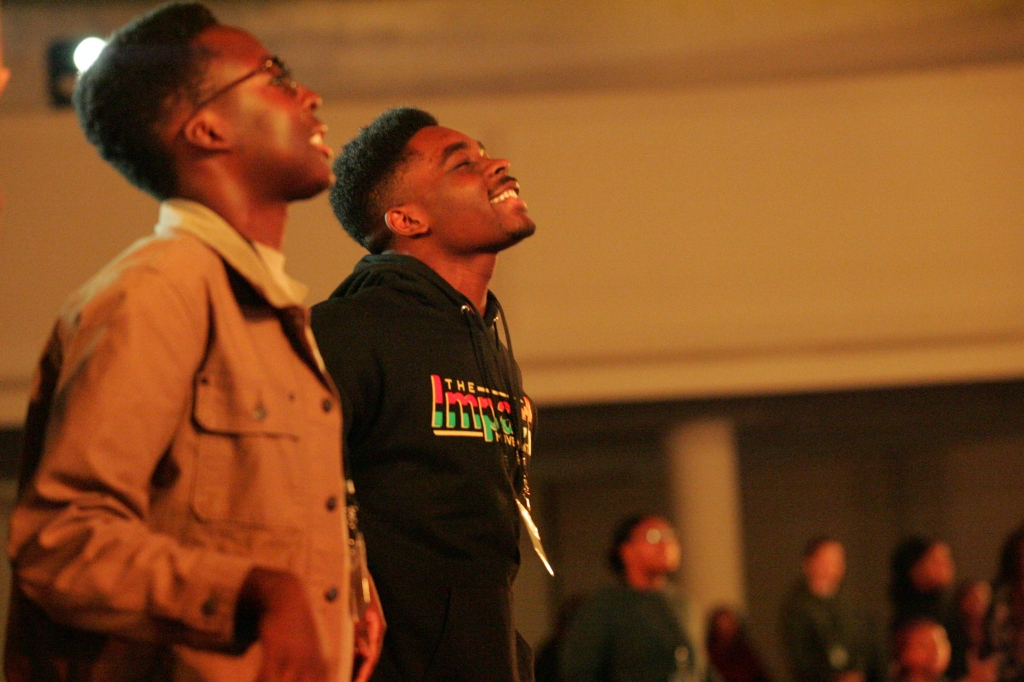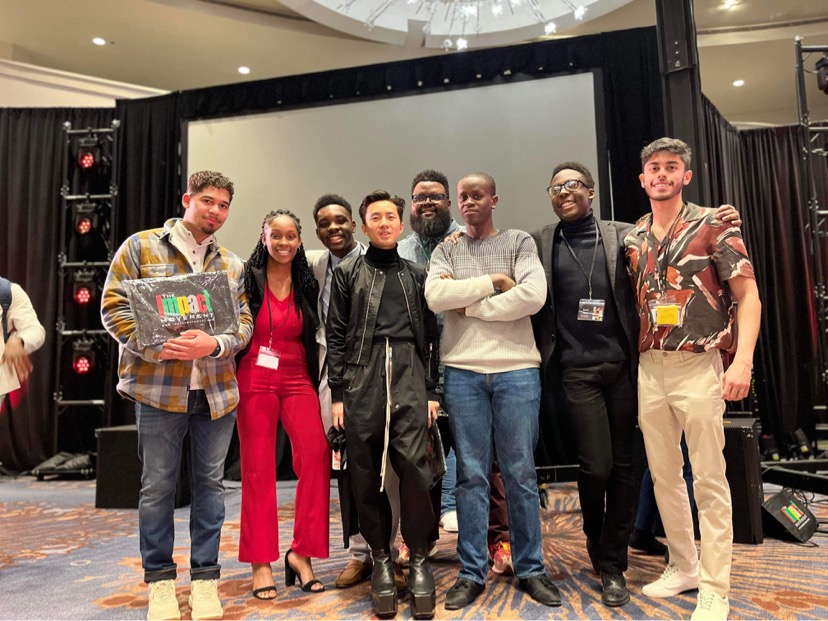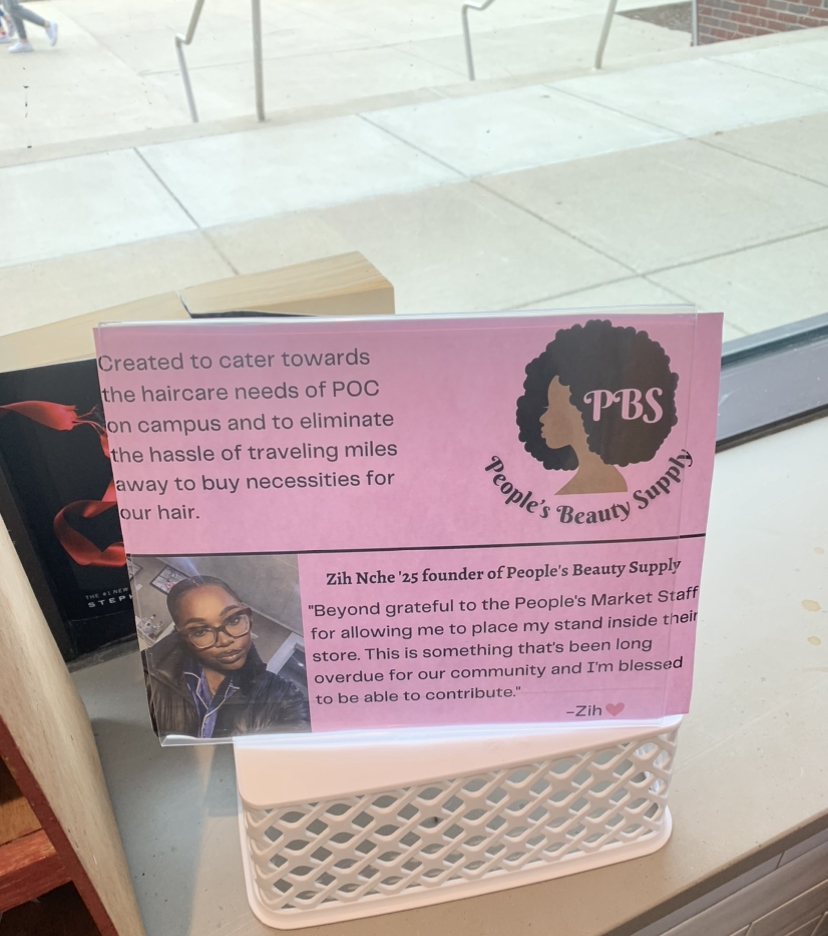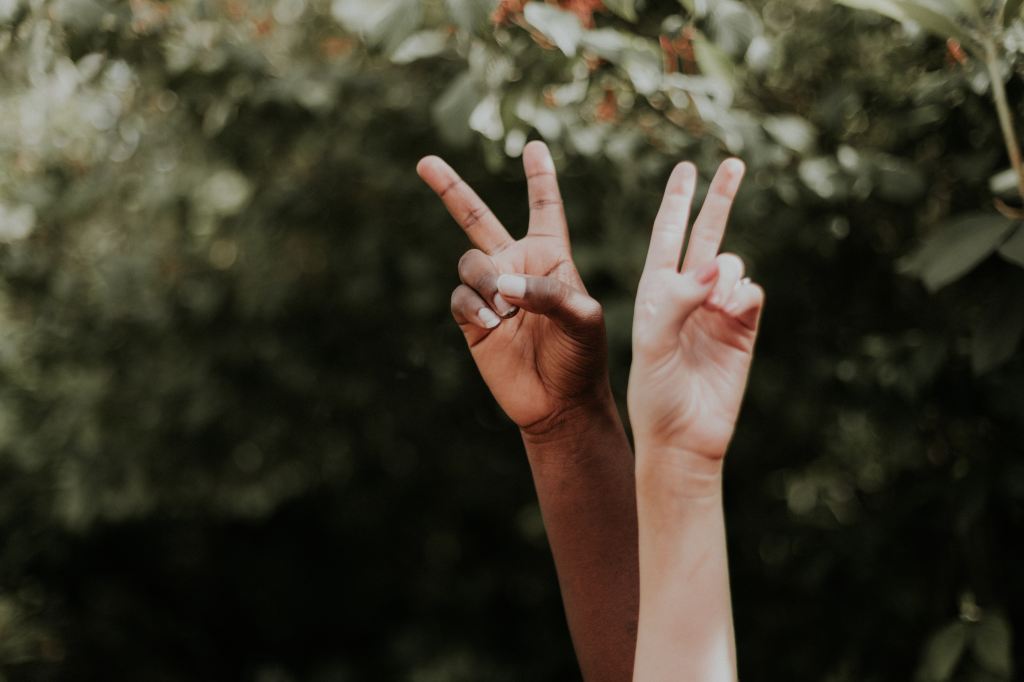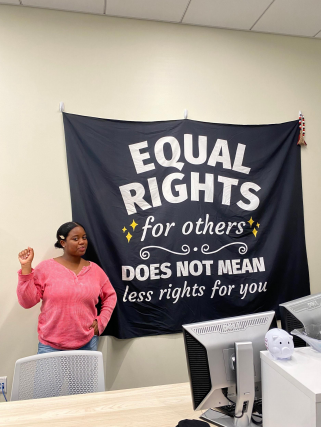
Mahoro Shimoro pauses in front of a banner that reads “Equal rights for others does not mean less rights for you” inside the Student Bridges office located in the Student Union.
By Joy Kunda
AMHERST – On April 25, 2024, Student Bridges (SB) hosted its bi-annual event “I’m So College.” According to Campus Pulse, on this occasion SB aims to host a “day of workshops, music, performances, food, and more. It provides students an interactive experience as they can engage with various student organizations on campus.” providing a lively introduction to life at UMass for prospective students.
What is Student Bridges?
When Mahoro Shimoro of Springfield enrolled as a freshman at the University of Massachusetts, she quickly became aware of the significant cultural differences that existed. Shimoro grew up in a city with a majority Black and Hispanic population, which is much more diverse compared to many of the surrounding towns. Soon, Student Bridges became a safe haven for her.
“I come from a city, where a majority of the population are low-income and first-generation people. Going to UMass in Amherst, which is predominantly white and very different from Springfield, was a culture shock for me,” Shimoro said. “I didn’t see many people who looked like me, and there weren’t many resources specifically for Black students, which made me feel like the way I spoke or expressed myself wasn’t represented.”
Shimoro became involved with Student Bridges during her sophomore year when she enrolled in a four-credit civic engagement course offered by the agency. As part of the course, she participated in various discussions on equity issues on campus.
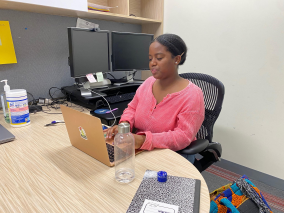
Mahoro Shimoro working at her computer desk in the Student Bridges Office.
“In the course, I was really able to engage with other college students about different topics surrounding access to higher education, connect with high school students in Springfield, and just gain a really strong interest in things like equity and access to resources,” said Shimoro.
Student Bridges is among the 12 student-run agencies at UMass with a primary goal of providing access and ensuring academic success for students from underrepresented cultural and social groups. Unlike other registered student organizations (RSO), Student Bridges employs paid staff on a yearly basis to uphold its mission and sustain the program’s operations.
Members of the underrepresented community served by Student Bridges include but are not limited to, first-generation students, Black and Indigenous People of Color, low-income individuals, and LGBTQ+ individuals.
Student Bridges was established at UMass to address the unique challenges underrepresented students face at UMass and increase their access to resources and success at the university. After proposing the “Low Income Access Outreach” Program, the organization received funding from the Student Government Association and was fully operational by September 2006. Since then, Student Bridges has worked to create bridges between UMass students and neighboring school communities by providing support to its students. According to its website, SB uses a four-method compone to achieve its goal which includes preparatory mentorship, college outreach, awareness, advocacy, and retention.
“The agency has grown significantly over the past 15 years, from humble beginnings to now having 13 paid staff positions as well as offering a paid graduate student staff position,” said Shimoro. “We also prioritize creating a sense of community and ensuring that students feel heard and that their needs are being respected and advocated for.”
Shimoro also developed a deep appreciation for community-building initiatives for students of color and local communities in college towns, which are often overlooked in institutional goals.
Shimoro, now a UMass alum with a degree in Sustainable Community Development, served as the Undergraduate Program Coordinator for the agency where she was in charge of developing and implementing the programs and initiatives designed to support the community they serve.
“In my role as a senior staff member, I have had the opportunity to develop my leadership skills, organizational skills, and time management skills. Additionally, I have cultivated a strong interest in mentorship, guiding students, and helping others,” Shimoro explained.
This semester, Student Bridges has worked on multiple projects, such as offering UMass campus tours tailored to BIPOC students and hosting career readiness workshops for underrepresented students on campus.
Bryanna Meija, a Kinesiology graduate, believes that growing up in predominantly diverse communities shaped the person she has become. Through Student Bridges, she has found a sense of belonging. Being surrounded by individuals who look like them provides a sense of comfort and familiarity that they find important. Meija aims to create a workplace that promotes inclusivity, where individuals of color can express their authentic selves without compromising the standard of professionalism.
“In order to set an example for the staff, I make sure that my actions in the workplace are appropriate and something that I would be comfortable with the staff doing as well,” said Meija. “It is important to create a work environment where everyone is respectful and cordial towards each other, as it is important to maintain a professional environment rather than a casual one like hanging out with friends.”
Priscillia Meta, a second-year Public Health Sciences major, was pleased to discover the SB office, introduced to by friends, was a welcoming and safe environment for her. The SB office which is located in the Student Union soon became her go-to spot to study. After her classes, she would visit the office to complete her work.
“I think that simply having a lot of people of color has been helpful in adjusting to college life as a freshman,” Meta said. “I feel comfortable around them and can be myself, which is an encouraging environment for me. Being around people who look like me has made it easier to adjust to the new surroundings.”
In April 2023, SB hosted an alumni night where past alumni were invited to share their experiences post-graduation and how the organization has impacted their lives and careers. Meta who attended the events emphasized its significance in highlighting how the experiences gained through the program continue to shape their lives beyond college.
“At the core of SB’s mission is the focus on access and retention beyond admission and enrollment. It’s about making sure that there are resources in place and support in order for high school students to thrive at the colleges they are admitted to.” said previous Student Bridges Director Olga Correa.
Correa stressed the importance of establishing connections between both the undergraduate students at UMass and students in nearby middle schools and high schools. Their efforts encompass recruitment beyond the local communities, with specific attention given to Holyoke and Springfield, as demonstrated by initiatives like peer mentorship groups.
Correa’s involvement with Student Bridges began in 2019 when she assumed the role of graduate program coordinator. In the subsequent year, she transitioned to the position of interim director and also took on the responsibilities of a course instructor for Student Bridges.
Reflecting on the agency’s advocacy for institutional and public policies, Correa emphasized the role of the policy advocacy coordinator—a position within Student Bridges that specializes in developing and leading campaigns aligned with the agency’s mission. This individual works collaboratively with other organization members to ensure that community members remain informed about state and federal developments concerning access to education.
The agency prioritizes addressing barriers faced by underrepresented students, such as retention challenges among marginalized groups, through programming efforts that include cultural events and providing information on campus resources, scholarships, and emergency funding, serving as a trusted source for students seeking reliable information.
“In our community engagement courses, we address the numerous barriers, notably the high cost of tuition and financial constraints faced by students,” said Correa. “ We understand the challenges faced in K-12 education, such as the lack of accessible counselors or teachers failing to provide information about scholarships and SAT preparation.”
Through its collaborations with middle and high schools, SB aims to ensure that students receive the necessary support and guidance they need to succeed.
Joy Kunda can be reached at jkunda@umass.edu
